Showing 131 to 140 of 259 results
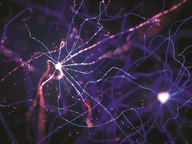
How memories are formed has long been a fundamental question for neuroscientists. Studies by Professor He Jufang, Wong Chun Hong Chair Professor of Translational Neuroscience in the Department of Neuroscience and Department of Biomedical Sciences, have shed light on the crucial role of a key neuromodulator, called cholecystokinin (CCK), in memory forming in the neocortex.

To take sensing and robotic actuation technologies to new heights and application domains, a collaborative research team at CityU is working on developing next-generation three-dimensional (3D) sensing systems and 4D robotics actuators for applications in digital healthcare, medical robotics and extended reality.
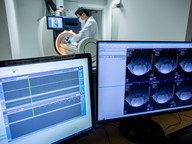
Collaborative research by CityU and Johns Hopkins University has developed a new, non-invasive way to identify Alzheimer’s disease even before any symptoms appear.
At CityU, an expert in neutron-scattering measurements has applied this state-of-the-art experimental technique to find out the deformation and transformation behaviours in complex materials, in particular at ultra-low temperatures, opening up a new area of materials research.

A research team led by biologists at City University of Hong Kong (CityU) has identified and characterised a set of specific super-enhancers that stimulate the activity of the related critical cancer genes. The research has also discovered that the deletion of certain specific super-enhancers could reduce tumour cell growth.
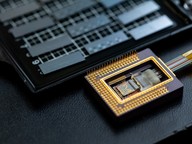
In the era of Artificial Intelligence (AI), a novel optical “micro-comb” chip developed by a physicist from the City University of Hong Kong (CityU) has played a pivotal role in building the fastest optical neural network processor. An international research team has recently demonstrated the world’s fastest and most powerful optical neural network processor, which is capable of operating at faster than 10 trillion operations per second.

Fabricating materials with complex shapes and desirable properties for various applications has long been a focus of materials scientists and engineers. A leading expert at CityU, who developed the world’s first supra-nano-dual-phase alloy and four-dimensional (4D) ceramic printing, is working on integrating these two cutting-edge technologies to fabricate lightweight, high-strength metallic materials for biomedical and aerospace applications.

The strength-ductility trade-off has always been a dilemma in materials science. Professor Liu Chain-tsuan at CityU, together with his team member Dr Yang Tao has developed a novel alloy design strategy to overcome this challenge, paving the way for fabricating materials for operating in extreme temperatures and aerospace systems.
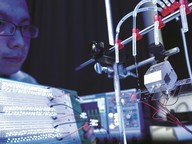
Professor Wang Zuankai, Associate Dean (Internationalisation and Industry Engagement) in the College of Engineering and Professor in the Department of Mechanical Engineering, has achieved research breakthroughs in efficiently converting the kinetic energy in water droplets into electrical energy, advancing research in water-based energy harvesting.
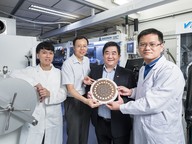
At CityU, Professor Alex Jen Kwan-yue, Lee Shau-Kee Chair Professor of Materials Science, has been working on developing more stable and environmental friendly perovskite and organic solar cells, which are believed to offer more promising and diverse applications to replace silicon as the future of photovoltaic technology.